NJ Teachers of English to Speakers of Other Languages/
NJ Bilingual Educators
ARTICLES
President: Margaret Churchill- Hello to Our New Weekly Email Newsletter
Announcing the … 2021 NJTESOL/NJBE Virtual SPRING CONFERENCE
NJTESOL/NJBE on Facebook: Regularly posted articles of interest
Grading Newcomers- A Can Do Approach
Dr. Reppy Scholarship for Spring for Graduate Students Enrolled in a Master’s in TESOL
Ensuring Progress and Knowledge Retention among ESL Students
Supervisor SIG Rep: Laura Arredondo, Ed.D.-
The Seal of Biliteracy: A Remedy for Inequity
Guest Contributor: Lisa Rose Johnson, Ed.D.- Increasing Student Engagement in a Virtual Learning Environment Using Jamboard
Technology Coordinator: Marilyn Pongracz- A Thankful List
6 Exercises to Get to Know Your Students Better
Helping Students Read Emotions Behind Masks
Call for Articles for the NJTESOL/NJBE Voices Journal
Spring Conference Keynote Speakers
Conference Coordinator: Sandee McBride- Dr. Stephen Krashen Attending the Spring Conference!
September 29, 2020
Hello to the New Weekly Voices!
By Maggie Churchill
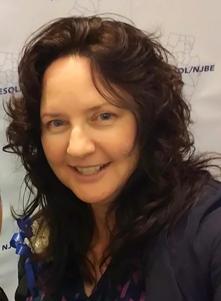 Dear Members,
Dear Members,
We are excited to announce a change coming to Voices, our organizational publication. In order to keep you better informed of timely changes and updates, announce programs and deadlines, and relate priority information, we have created Weekly Voices, an email communication that is more relevant to the changing needs of our membership. This newsletter will be sent just once a week, and you will be able to opt-out at any time.
The quarterly publication, Voices, will now be published once annually. This publication will have a new focus on the dissemination of best practices in the field of bilingual, dual language, and ESL education. More information will be forthcoming.
Look for our first issue to arrive next week!
Yours,
Maggie Churchill, President, NJTESOL/NJBE
EdCamps
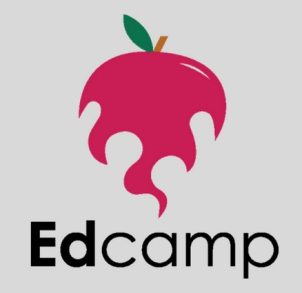 You are invited to attend the NJTESOL/NJBE virtual Edcamps.
You are invited to attend the NJTESOL/NJBE virtual Edcamps.
It’s FREE!
It’s a unique opportunity to exchange ideas and find out what other teachers are doing and what is happening in ESL programs around the state. At an edcamp, you choose the topics for open sessions for questions and discussions about teaching ESL in public schools and colleges. Register now!
Click on the links below for one or both dates:
October 3, 2020
The first of two free virtual October Edcamps hosted by NJTESOL/NJBE
Featured Topics: Equity issues, Special Education, Newcomers/Equity issues, Newcomers/SLIFE, and Parent/Family engagement.
It is open to all educators Pre-K through Higher Education. Save your spot!
October 17, 2020
The second of two free virtual October Edcamps hosted by NJTESOL/NJBE.
Featured Topics: Remote Teaching/Learning & Technology, Social/Emotional Learning, Parent/Family engagement.
It is open to all educators Pre-K through Higher Education. Reserve your place!
October 7, 2020
Announcing the …
2021 NJTESOL/NJBE Virtual SPRING CONFERENCE
 May 25, 26 & 27 – Tuesday, Wednesday & Thursday
May 25, 26 & 27 – Tuesday, Wednesday & Thursday
NJTESOL/NJBE invites you to participate in its Annual Spring Conference.
All Three Days: General Interest, Content Area Instruction/ESL Pre-K through 12
Higher Ed, Teacher Ed, Adult Ed, K-12, Dual Language/Biliteracy
2021 Spring Conference Registration available online NOW!
Early registration ends March 5, 2021
Regular registration ends May 1, 2021 (unless capacity is reached prior to this date)
2021 Call for Workshops Proposal available online NOW!
Proposal deadline is November 15, 2020
† A one year NJTESOL/NJBE membership is now a gift of the organization to all paid conference attendees. The year membership will start when registration is processed. If you are already a current member, your membership will be extended for one year from your current expiration date.
Visit our website for more information.
For questions concerning your status of your conference registration, please contact Gwen Franks.
For other conference questions email Michelle Land
Michelle Land, Vice-President and Conference Chair, NJTESOL/NJBE, Inc.
October 7, 2020 cont.
EdCamp
 You are invited to attend the second NJTESOL/NJBE virtual Edcamp.
You are invited to attend the second NJTESOL/NJBE virtual Edcamp.
It’s FREE!
It’s a unique opportunity to exchange ideas and find out what other teachers are doing and what is happening in ESL programs around the state.
At an Edcamp, you choose the topics for open sessions for questions and discussions about teaching ESL in public schools and colleges.
Here are some comments from Saturday, October 3.
- “Thank you for organizing this event. The topics were spot on. I felt like I’m part of a community as an ESL teacher.”
- “I enjoyed the opportunity to share with my colleagues. In addition to learning new things, I was able to get feedback on some of the things that I am presently doing.”
- “I was grateful to hear stories from people who has similar concerns and learn from those who were able to provide strategies.”
- “Thank you so much for continuing these! It’s great to feel supported during this especially difficult time.”
- “It is always comforting to hear that other professionals are facing the same challenges. They have offered many valuable resources to benefit my students. Thank you for all of your work to present this.”
Click on the link below to register now for this wonderful opportunity!
October 17, 2020
The second free virtual October Edcamp hosted by NJTESOL/NJBE
Featured Topics: Remote Teaching/Learning & Technology, Social/Emotional Learning, Parent/Family engagement.
It is open to all educators Pre-K through Higher Education. Reserve your place!
October 14, 2020
NJTESOL/NJBE on Facebook
Regularly posted articles of interest:
from International TESOL
Statement on Executive Order Banning Sensitivity Training Programs in the United States
“As racial, social, and economic divisions continue to grow across the United States, it has become clear that there is an historic need for sensitivity training programs that aim to promote a path towards national unity, rather than continue on a road filled with discord, hate, and discrimination. Such unity, however, can only be achieved when sensitivity programs acknowledge offensive stereotypes and teach participants about conscious and unconscious biases regarding race, sex, gender, religion, national origin, and language proficiency.”
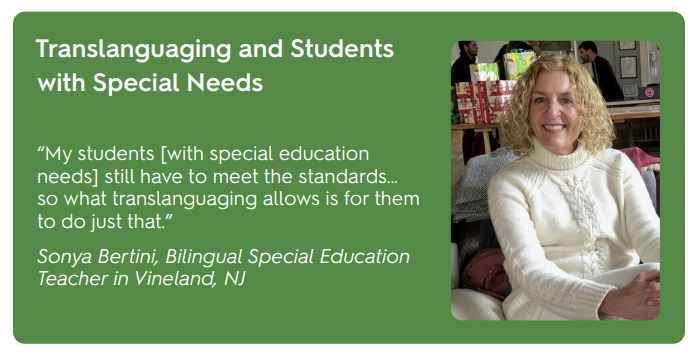 from WIDA researcher Mariana Castro
from WIDA researcher Mariana Castro
Teaching at the Intersection of Language and Social Justice
This bulletin examines the uses and benefits of translanguaging by four educators of students kindergarten to high school.
One of the teachers highlighted in the bulletin is Sonya Bertini, the NJTESOL/NJBE WIDA Representative
Last chance to sign up for the FREE NJTESOL/NJBE Edcamp!
It’s a unique opportunity to exchange ideas and find out what other teachers are doing and what is happening in ESL programs around the state.
 At an edcamp, you choose the topics for open sessions for questions and discussions about teaching ESL in public schools and colleges.
At an edcamp, you choose the topics for open sessions for questions and discussions about teaching ESL in public schools and colleges.
Click on the link below to register now!
October 17, 2020 – 8:30am – 12:00pm
The second free virtual October Edcamp hosted by NJTESOL/NJBE
Featured Topics: Remote Teaching/Learning & Technology, Social/Emotional Learning, Parent/Family engagement.
It is open to all educators Pre-K through Higher Education. Click here to reserve your place!
October 21, 2020
Grading Newcomers: A Can Do Approach
 In his blog, Tan Huynh shares his Twitter friend, Emily Francis’ advice on how to use the WIDA Can Do Descriptors for her students’ greatest benefit.
In his blog, Tan Huynh shares his Twitter friend, Emily Francis’ advice on how to use the WIDA Can Do Descriptors for her students’ greatest benefit.
She provides three tips with instructions for implementation and downloadable charts for everything.
- First, she shares the descriptors with the mainstream teachers, showing them how to use the charts, and also providing instructions for scaffolding at each level.
- Next, she shares them with her students so they can plot their current levels and set their English language goals on a student version of the descriptors.
- Finally, she shares them with the parents in quarterly progress reports, as much as possible, in the parents’ native language.
This site has a wealth of valuable information, as its title suggests, Empowering ELLs. (Article no longer available)
EdCamp Notes
Lots of Valuable Information on These Padlets!
October 3, 2020
How does Parent/Family engagement interact with Equity, Special Education, and Newcomers/SLIFE issues?
October 17, 2020
How does Parent/Family engagement interact with Remote Teaching/Learning & Technology, Social/Emotional Learning?
October 27, 2020
Attention Graduate Students Enrolled in a Master’s in TESOL Degree Program!
 college student with laptop
college student with laptop
Dr. Jessie Reppy Memorial Scholarship
Spring 2021
NJTESOL/NJBE is pleased to announce that the Dr. Jessie Reppy Memorial Scholarship will be awarded for the first time to a graduate student enrolling in an accredited Master’s in TESOL degree program in the field of English as a Second Language for the Spring 2021 college semester. Applicants need to apply before December 11, 2020. The winning applicant will be awarded $2500 toward their tuition to be paid directly to the school bursar. Refer to the application to ascertain the eligibility criteria and needed supportive documents for each grant/award. Choose the form from the links below and follow the instructions carefully. All applications, recommendations, and other required information must be received on or before December 11. 2020. Keep in mind that, in all fairness, any forms received after December 11th will not be eligible for consideration. You can find the scholarship information here.
Please address questions to our scholarship coordinator, Judie Haynes.
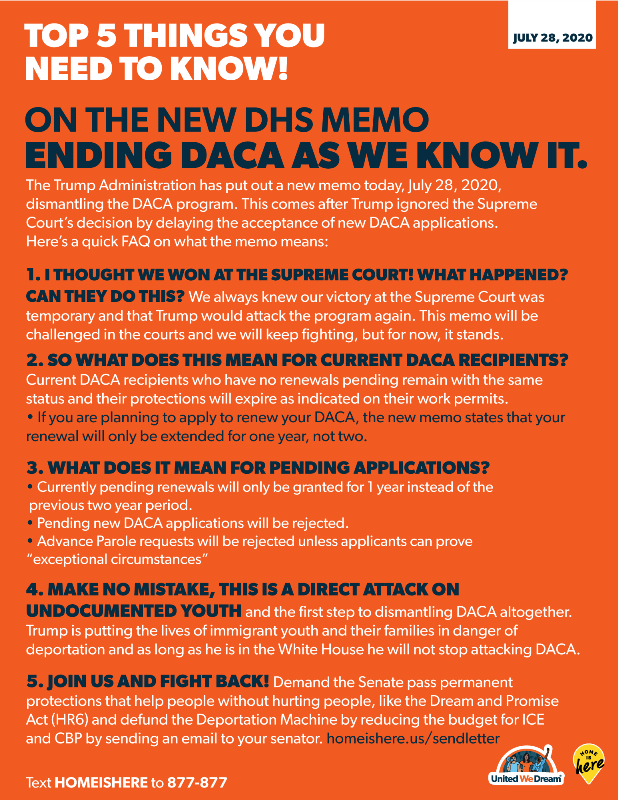 Advocacy
Advocacy
The NJTESOL/NJBE Socio-Political Representative, Elizabeth (B.J.) Franks, forwarded a message from Jennifer Rodriguez from undocuJersey to the hotlist last week.
Listed were resources from United We Dream for DACA recipients whose status now is more tenuous as renewals are limited to a year, (See undocuJersey’s Facebook page.) and yet they are actively involved in advocacy.
Also listed is how United We Dream fights for immigrant rights.
Immigrant Youth Win Occupational Licensure in NJ Regardless of Status
The New Jersey state legislature passed a groundbreaking law that opens occupational licensure to immigrants in NJ, regardless of their status. This law removes the boundaries to procuring licensure for undocumented residents hoping to become doctors, nurses, electricians, counselors, cosmetologists, and other professionals. To read more about the new law visit State of NJ website here.
New Office of New Americans Investing in New Jersey’s Immigrant Communities
On October 14, Governor Phil Murphy, Human Services Commissioner Carole Johnson, and Labor & Workforce Development Commissioner Robert Asaro-Angelo highlighted investments in New Jersey’s immigrant communities through the Office of New Americans (ONA), including how the newly signed State budget will invest in providing critical legal representation to immigrants facing deportation and efforts to integrate immigrant residents into the workforce.
The FY 2021 State budget signed by Governor Murphy doubled the funding for legal representation from $3.1 million to $6.2 million. The Office of New Americans, housed within the Department of Human Services, will be responsible for the oversight of this critical program that, through community-based legal services organizations, has so far provided legal representation to more than 1,500 immigrants facing deportation and has successfully helped many long-term New Jerseyans remain with their families.
November 3, 2020
Ensuring progress and knowledge retention among ESL students
by Douglas Magrath
This article published in MutliBrief was written for Higher Education teachers, but much of the information and tips will be helpful to ALL teachers of ELLs. The 4 teaching tips include:
- using music for retention of vocabulary and increasing comfort level
- encouraging ELLs in the general education classroom
- teaching global skills and awareness in class
- discussing the benefits of becoming bilingual
Shared by Hana Prashker,
NJTESOL/NJBE ESL Secondary Rep.
Congratulations!
In October, Patricia George, EdD, was invited to serve as an Awards Reviewer for TESOL International’s University of Pittsburgh Travel Award for IEP Instructors, and was elected to TESOL International’s Professional Development Professional Council (PDPC) beginning November 1, 2020.
Patricia George, EdD, is the NJTESOL/NJBE Higher Ed SIG Representative.
NJEA Convention Presentations by and for NJTESOL/NJBE Teachers
ENGLISH LANGUAGE LEARNERS
Thursday, November 5, 2020
9:00-10:00 A.M.
Globalization to the Rescue; Presenter: Pedro Trivella;
10:30-11:30 A.M.
Cognate Word Wall; Presenter: Jeannie M. Cuevas; Middle School
1:00-2:00 P.M.
Innovative Strategies of the Universal ESL/ELA YODA Instructor; Presenter: Kristine L.Liguori- Nazzal; NJCTY; High School
Friday, November 6, 2020
9:00-10:00 A.M.
Writing with English Language Learners; Presenters: Debra L. Billmann; NJTESOL/NJBE; Pre-K – Gr. 12
10:30-11:30 A.M.
SEL for ELLS; Presenter: Dr. Johanna Amaro; Pre-k – Gr. 12
2:30-3:30 P.M.
The UDL Model in the ELL Classroom: Presenter: Dr. Johanna Amaro; Pre-K – Gr. 12
WORLD LANGUAGES
Thursday, November 5, 2020
10:30-11:30 A.M.
Harnessing the Power of ELLS’ First Languages: Presenters: Adrianna A. Reyes, Dana J. Nelson; NJTESOL/NJBE; Pre – K – Gr. 12
November 10, 2020
The Seal of Biliteracy: A Remedy for Inequity
By Laura Arredondo Ed.D.
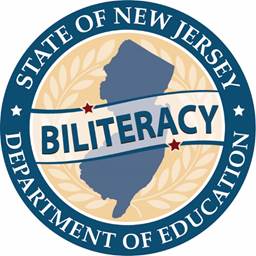 As public school educators, it is our duty to ensure that all students participate in high quality learning experiences. It is no longer a question of access. Access is an ambiguous term, which presupposes that all students have the information, confidence and self-advocacy to gain entry to the best programs. In addition, taking the stance that we are guaranteeing access absolves us from action, relegating responsibility to those without bootstraps.
As public school educators, it is our duty to ensure that all students participate in high quality learning experiences. It is no longer a question of access. Access is an ambiguous term, which presupposes that all students have the information, confidence and self-advocacy to gain entry to the best programs. In addition, taking the stance that we are guaranteeing access absolves us from action, relegating responsibility to those without bootstraps.
Barriers to pathways to excellence exist for many students. Our finest programs, those that connect with and validate knowledge of students and families, provide opportunities for student choice, and disrupt traditional hierarchical classroom roles, are reserved for the few. We all know this. And we know that rigid tracking programs reproduce inequities, excluding many young talented minds (Oakes, 1982). Who are these students who are excluded? They are students of color, students of low SES, students with physical and learning differences, and students with home languages other than English, particularly those who speak the languages of people of color.
Students not assigned to the honors tracks do not always advocate for themselves. The voice that tells them that they are not good enough becomes their own internal voice. Spanish speaking emergent bilingual students, like speakers of other non-status languages, learn and accept that their Spanish is substandard. Rather than being a valuable resource for learning (Cummins, 1981), bilinguals learn that their knowledge of a language other than English is actually a deficit. By this strange logic, we hold the very lowest expectations for those students who speak two non-status languages, Spanish and Mam, for example. Language educators have long understood the implicit racism behind antiquated one-brain, one-language theories. That we allow our students to believe and accept this dogma is shameful.
Through their efforts to highlight and validate the knowledge and resources of diverse communities, Californians Together established the Seal of Biliteracy in the state of California in 2011. New Jersey is one of the now 40 states (and the District of Columbia) that have established a Seal of Biliteracy, recognizing “students who have studied and attained proficiency in two or more languages by high school graduation.” (https://sealofbiliteracy.org/) In New Jersey, graduating seniors who demonstrate an Intermediate Mid proficiency are eligible to earn the Seal. Recognizing the dynamic nature of proficiency growth and erasing the arbitrary concept of a boundary line of fluency, the Seal has provided a forum to celebrate and honor the achievement not only of emergent bilingual and heritage language speakers, but also other students who did not participate in the honors/AP pathways of study.
I have witnessed this evolution in my district. In 2016 and 2017, only students who self-selected and self-funded the proficiency testing were able to participate. The district funded any students who claimed financial need, however, only a handful of students in ELL programs and the non-honors pathways of world language study, less than 15 in total, attempted and earned this distinction. In the 2017-2018 school year, under the leadership of a visionary superintendent, Hunterdon Central Regional High School changed its practice and provided district-funded proficiency testing for all junior and senior level world language classes, including ESL and Heritage Spanish classes. Suspecting that many students were underestimating their own knowledge, through subtle and not-so-subtle district and societal messaging, we believed that the Seal would prove to be an additional pathway to excellence, a pathway of equity open to many more students, and that it would raise expectations of educators and learners alike.
In Spring 2020, 166 graduating seniors of Hunterdon Central earned the Seal of Biliteracy, a remarkable increase from the 100 students of Spring 2017. This number included more than half of the seniors in the non-honors/AP world language pathway, and every graduating senior from the Heritage Spanish, ESL and bilingual programs.
I urge all public school educators to challenge the concept of accessibility, cast aside the inequitable practice of student self-selection, and advocate for district funding for proficiency testing for all graduating high school seniors in world language programs of study. Our belief in our students will become our students’ belief in themselves.
Laura Arredondo, Ed.D.
Supervisor SIG Representative, NJTESOL-NJBE Executive Board
Supervisor of World Language and ELL Programs, Hunterdon Central Regional High School
References
Cummins, J. (1981). “The Role of Primary Language Development in Promoting Educational Success for Language Minority Students.” In Schooling and Language Minority Students: A Theoretical Framework, edited by the California State Department of Education Office of Bilingual Bicultural Education. Los Angeles, Calif.: Evaluation, Dissemination and Assessment Center, California State University.
Oakes, J. The reproduction of inequity: The content of secondary school tracking. Urban Rev 14, 107-120 (1982). https://doi.org/10.1007/BF02174647
November 17, 2020
Increasing Student Engagement in a Virtual Learning Environment Using Jamboard
By Lisa Rose Johnson, Ed.D.
For many educators, virtual learning has been the norm since March of 2020. This new learning platform has presented many opportunities for students and educators to become active learners. As a constructivist educator, I feel that one tool that allows for students to be engaged in their learning is the Google Extension Jamboard. If you are unfamiliar with Jamboard, you can learn more about it by reading the linked article here edu.Google.com. According to the website, Jamboard is a “student tablet users can access a suite of rich editing tools to collaborate with students or educators.” It allows students to respond in real-time or asynchronously.
Features of Jamboard
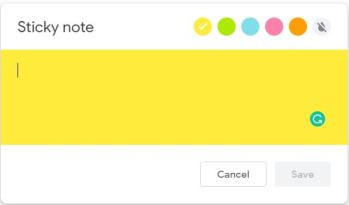 Jamboard is available as a Google Application or can be added as an extension. It can be used on a computer, tablet, iPad, or smartphone. Many school Google accounts have it included under the Google Apps in the top right-hand corner of the Google search engine homepage. If your account does not have Jamboard, it is a free extension that can be downloaded and added to Google from here. Once the extension is added, you can open it. Jamboard allows the user to respond in multiple ways. First, there is a pen that can be used to draw images. Below is an example of how the students responded during spot-check while reading the story The Little Prince. Under the pen is an eraser that can be used to erase unwanted pen and other marks. Third, the select button allows for items within the Jamboard Screen to be moved.
Jamboard is available as a Google Application or can be added as an extension. It can be used on a computer, tablet, iPad, or smartphone. Many school Google accounts have it included under the Google Apps in the top right-hand corner of the Google search engine homepage. If your account does not have Jamboard, it is a free extension that can be downloaded and added to Google from here. Once the extension is added, you can open it. Jamboard allows the user to respond in multiple ways. First, there is a pen that can be used to draw images. Below is an example of how the students responded during spot-check while reading the story The Little Prince. Under the pen is an eraser that can be used to erase unwanted pen and other marks. Third, the select button allows for items within the Jamboard Screen to be moved.
Jamboard also has a sticky note feature that allows the students to type using the keyboard on a computer or on their device. The background of the sticky notes can be changed, and each student could be assigned a specific color if needed. Jamboard also allows for the user to use Google Images to search for images that can be added to the Jamboard. This provides for students to create collages or to search for images for vocabulary lists. There is also a textbox and a laser pointer.
How I Use It
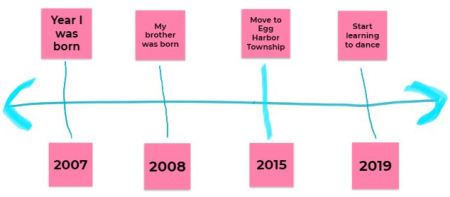 As an ESL teacher who works in a middle school, I have used Jamboard to create timelines. Jamboard allowed the students to develop a timeline, add pictures, and write in the textbox or the sticky notes. Students were able to give and receive peer feedback, and I, as the teacher, could watch all of the students work as each student was given their own page in the same Jamboard. I could switch from one board to the other and provide written feedback. If you are using Jamboard in a live virtual class, the Jamboard can be shared on the virtual platform. Students can also share their Jamboard without having to share their screen. Jamboard can also be used as a tool for asynchronous learning days. Students can work on the Jamboard at any time on any device. If you are looking for a new digital tool to add to your virtual learning toolbox I highly suggest that you give Jamboard a try.
As an ESL teacher who works in a middle school, I have used Jamboard to create timelines. Jamboard allowed the students to develop a timeline, add pictures, and write in the textbox or the sticky notes. Students were able to give and receive peer feedback, and I, as the teacher, could watch all of the students work as each student was given their own page in the same Jamboard. I could switch from one board to the other and provide written feedback. If you are using Jamboard in a live virtual class, the Jamboard can be shared on the virtual platform. Students can also share their Jamboard without having to share their screen. Jamboard can also be used as a tool for asynchronous learning days. Students can work on the Jamboard at any time on any device. If you are looking for a new digital tool to add to your virtual learning toolbox I highly suggest that you give Jamboard a try.
Dr. Lisa Rose Johnson, Ed.D., currently teaches ESL in Egg Harbor Township Public Schools and works at Rowan University. She currently holds two executive positions within the American Education Research Association (AERA). First, she is the Vice-Chair for the Special Interest Group #96 Inclusion and Accessibility in Educational Assessment and is the Secretary/Treasurer of SIG #126 Teacher as Researcher (TAR).
References
Bring learning to life with Jamboard. (n.d.). Retrieved September 10, 2020, from https://edu.google.com/products/jamboard/?modal_active=none
Jamboard Google Extension. (n.d.). Retrieved September 10, 2020, from https://chrome.google.com/webstore/detail/jamboard/ihacalceahhliihnhclmjjghadnhhnoc?hl=en-US
November 24, 2020
A Thankful List
 Thanksgiving is a time when we are supposed to be grateful. In my situation, I’ve had time to think and reflect, and I hope you can, too.
Thanksgiving is a time when we are supposed to be grateful. In my situation, I’ve had time to think and reflect, and I hope you can, too.
But what can we be thankful for in 2020? There has been so much stress, heartbreak, and trouble.
- As I moderate the hotlist and read about all the craziness that many of you are going through, and as I talk with my younger daughter and son-in-law, who are both teachers in MA, I am thankful for my low-stress job as the ESL Tutoring Supervisor at Bergen Community College.
- Last March, our spring break was early, so we avoided a lot of potential exposure to the virus. BCC has followed the science with practical, early planning, so the college is totally remote except for hands-on classes.
- A colleague on the NJTESOL/NJBE Executive Board told me that her young children often drive her crazy, but she is thankful for the extra time she has had to spend with them.
- A change which will result in a different United States Secretary of Education, as well as hope and not dread for many immigrant students and their families
- A situation which lay bare the nefarious underbelly of our society- We discovered what needs to be fixed, what we need to be vigilant about, and how important it is to be involved in our political system. New leaders emerged.
- Science, for guiding us through these days and developing a vaccine in record time
- We’ve discovered resources, made innovations, found methods of reaching out to our students, and as a result, have become better educators.
- Finally, there is the prospect of better days ahead.
From the New York Times, The Pandemic in Six-Word Memoirs,
“Numbers rise, but sun does too.” – Paloma Lenz
Marilyn Pongracz is the Technology Coordinator for NJTESOL/NJBE
Schools of Character
 “What would you say about schools that, in addition to teaching students how to read, write and multiply, inspire them to treat all people with respect? Schools where teachers and staff members model the power of a smile, a kind word or a listening ear? Wouldn’t you want your child to attend a school where students are taught to be honest and trustworthy, to contribute their time and talents to the common good and, when necessary, to show the courage to stand up for what is right?”
“What would you say about schools that, in addition to teaching students how to read, write and multiply, inspire them to treat all people with respect? Schools where teachers and staff members model the power of a smile, a kind word or a listening ear? Wouldn’t you want your child to attend a school where students are taught to be honest and trustworthy, to contribute their time and talents to the common good and, when necessary, to show the courage to stand up for what is right?”
“We want to bust open the secret that these schools exist.”
They work towards building a more inclusive community and encouraging shared values with schools, parents, and students that, “motivate students to do the right thing, especially when no one is looking.”
One of these 84 schools is Arthur L. Johnson High School in Clark, New Jersey.
December 1, 2020
6 Exercises to Get to Know Your Students Better—and Increase Their Engagement
 By Nora Fleming
By Nora Fleming
This article includes ideas and links to SEL (Social Emotional Learning) activities that are appropriate for upper elementary students through university. Some are quick activities and others are unit plans. All the ideas can help teachers know their students as well as students know and acknowledge themselves!
The ideas include:
- Laws of Life Project
- Identity Charts
- Student Inventories – Hopes and Dreams
- Passion Blogging
- Documenting Your Life though Multimedia
- Having Fun activities
Find out more about these ready to use activities
Shared by Hana Prashker, NJTESOL/NJBE ESL Secondary SIG Representative
Giving Tuesday
It’s today! Your donation to the NJTESOL/NJBE scholarships, is appreciated, but if your dollars are supporting a food bank or other charity to help those in this time of need, please do what you think is best.
Helping Students Read Emotions Behind Masks
 This short video discusses the need to teach students and teachers to read emotions while wearing a mask. There is a printable pdf chart included in the article showing how different emotions look while wearing a mask and not wearing a mask.
This short video discusses the need to teach students and teachers to read emotions while wearing a mask. There is a printable pdf chart included in the article showing how different emotions look while wearing a mask and not wearing a mask.
View the video and get the chart
Also shared by Hana Prashker
If you have an article, activity, or resource to share in Weekly Voices, please send it to voices@njtesol-njbe.org
You may also submit an article for the Annual Voices Journal online to be published this winter. See the guidelines here.
December 8, 2020
Call for Articles for the NJTESOL/NJBE Voices Journal
 Our membership has been enjoying NJTESOL/NJBE Weekly Voices for several weeks now, but our journal publication, NJTESOL/NJBE Voices is not gone. NJTESOL/NJBE Voices Journal is now an annual winter publication and we are looking for articles from our members now. We are focusing on submissions in the following areas:
Our membership has been enjoying NJTESOL/NJBE Weekly Voices for several weeks now, but our journal publication, NJTESOL/NJBE Voices is not gone. NJTESOL/NJBE Voices Journal is now an annual winter publication and we are looking for articles from our members now. We are focusing on submissions in the following areas:
- Current issues: a submission for the current issues category should provide a clear analysis, critique, discussion, or presentation of key topics in New Jersey ESL, Bilingual Education, and Dual Language programs.
- Classroom explorations: a submission for the classroom explorations category will enable teachers to share their personal perspectives on their own instructional techniques, challenges, issues, and successes. It should include viewpoints in developing multiple avenues to address the range of issues in ESL, Bilingual Education, and Dual Language education and student learning. Each submission should include the type of program, the instructional techniques, and overview in the first paragraph, then provide supporting evidence throughout the rest of the article.
- Program descriptions/exemplary scheduling: a submission for this category will detail a school or district program that has created a solution to an issue impacting effective instructional settings for English language learners, bilingual students, and dual language learners. These programs do not need to be all encompassing, but rather provide insight into creative strategies for scheduling and/or lesson planning to enhance student learning.
- Alternative perspectives: a submission in this category will provide an opportunity for diverse perspectives on one issue or topic. We encourage innovative commentary on issues or teaching methodologies as a way of including all voices in a professional conversation.
Articles should be current and appropriate as related to the teaching of English to speakers of other languages, Bilingual Education, and Dual language programs including students who are U.S.-born bilinguals, “generation 1.5”, immigrants, and international students. Articles may focus on any educational level, from kindergarten to university, as well as on adult school and workplace literacy settings. Article length is recommended to be from 500-1200 words and photos are accepted. Please check the complete guidelines at the link below.
NJTESOL/NJBE thrives on the scholarship and teaching skills of its members. Please take the time to share some of your expertise with your colleagues in NJTESOL/NJBE Voices Annual Journal. Deadline for submission is January 15, 2021. Click here for submission information.
Thank you,
Kathleen Fernandez, Executive Director NJTESOL/NJBE
Spring Conference Keynote Speakers
The keynote speakers scheduled for last year are coming to the virtual conference in May 2021!
 Dr. José Medina, Founder and Chief Educational Advocate at Dr. José Medina: Educational Solutions
Dr. José Medina, Founder and Chief Educational Advocate at Dr. José Medina: Educational Solutions
Topic: Serving the Needs of Emergent Bilinguals
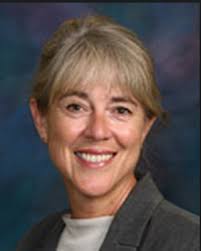 Jane D Hill, Principal Consultant for McREL
Jane D Hill, Principal Consultant for McREL
Topic: Language and Discourse for English Language Learners
 Dr. Kate Seltzer, Assistant Professor, Rowan Unversity
Dr. Kate Seltzer, Assistant Professor, Rowan Unversity
Topic: Translanguaging Practices of Emergent Bilinguals
See our website for details and registration.
December 15, 2020
NJTESOL/NJBE Virtual Spring Conference, May 25, 26, & 27
Dr. Stephen Krashen Attending the Spring Conference!
Dear Members,
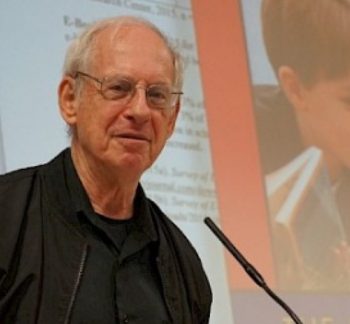 We are excited to announce that Dr. Stephen Krashen will be attending our conference this May. We have all studied his theories and applied his work in our teaching and now he will join us at our spring event. Dr. Krashen has published more than one hundred books and hundreds of journal articles. Professor Emeritus at the University of Southern California, he is a linguist, education researcher, and political activist. We are so pleased that he has agreed to take part in our NJTESOL/NJBE Spring Conference.
We are excited to announce that Dr. Stephen Krashen will be attending our conference this May. We have all studied his theories and applied his work in our teaching and now he will join us at our spring event. Dr. Krashen has published more than one hundred books and hundreds of journal articles. Professor Emeritus at the University of Southern California, he is a linguist, education researcher, and political activist. We are so pleased that he has agreed to take part in our NJTESOL/NJBE Spring Conference.
This virtual conference provides greater flexibility than our past face to face events. When you register, you will have access to valuable information for all three days, including the sessions kept in our “library” and all workshops for months later. If you cannot take time off from teaching, you can attend around your teaching/work schedule and view the remainder of the professional development presentations at your convenience!
Find out more about our invited guests and keynotes below and in our upcoming newsletters.
Sandee McBride, Conference Coordinator, NJTESOL/NJBE
WIDA at the Conference
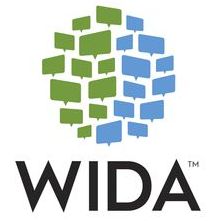 We are thrilled to welcome the return of WIDA staff to this year’s virtual conference. The WIDA 2020 ELD Standards will be deconstructed with one of the standards-writing team, Dr. Lynn Shafer-Willner. Three days, with three different offerings will preview the standards, offer guidelines for implementation, and examine language usage in-depth. Also returning to NJTESOL/NJBE is Dr. Stephen O’Connell, Assessment Manager at WIDA, who will guide participants through the WIDA MODEL, a formative assessment that is used throughout New Jersey districts.
We are thrilled to welcome the return of WIDA staff to this year’s virtual conference. The WIDA 2020 ELD Standards will be deconstructed with one of the standards-writing team, Dr. Lynn Shafer-Willner. Three days, with three different offerings will preview the standards, offer guidelines for implementation, and examine language usage in-depth. Also returning to NJTESOL/NJBE is Dr. Stephen O’Connell, Assessment Manager at WIDA, who will guide participants through the WIDA MODEL, a formative assessment that is used throughout New Jersey districts.
Don’t miss this unique opportunity for standards-based professional development to prepare for the roll-out of the updated WIDA ELD Standards!
Maggie Churchill, President, NJTESOL/NJBE
 Visit our home page for links to past and present Voices issues.
Visit our home page for links to past and present Voices issues.
